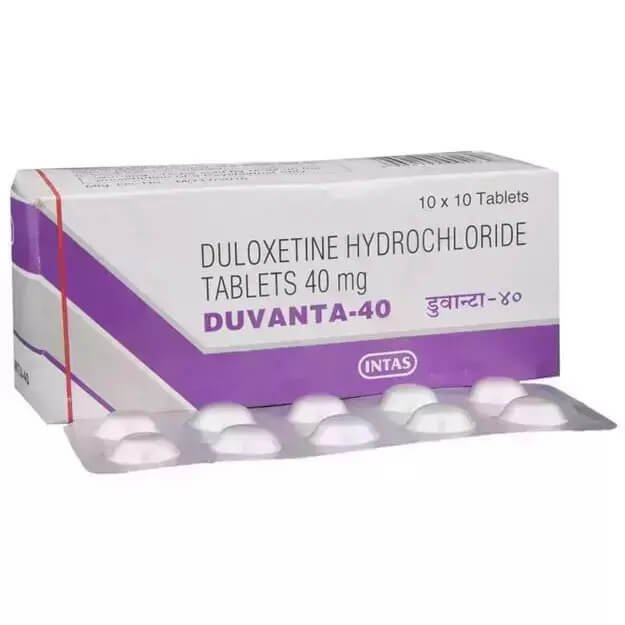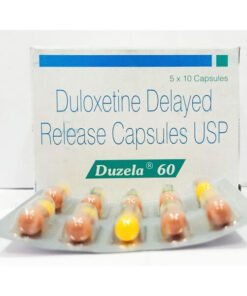Duvanta 40 Mg
Price range: $100 through $160
| Active Ingredient (Generic Name) | Duloxetine |
|---|---|
| Indication | Anxiety |
| Manufacturer | Intas Pharmaceuticals Ltd |
| Packaging | 10 tablets in 1 strip |
| Delivery Time | 6 to 15 days |
Duvanta 40 mg is a medication commonly prescribed for the treatment of depression and anxiety disorders. Discover how this medication works, its benefits, and precautions to consider. Consult your healthcare provider for personalized advice and start your journey towards improved mental well-being with Duvanta 40 mg.
| Duvanta 40 Mg | |||
|---|---|---|---|
| Pack Size | Price | Per Unit | Qty |
| 50 Tablets | $100 | $2.00 | |
| 100 Tablets | $120 | $1.20 | |
| 200 Tablets | $140 | $0.70 | |
| 300 Tablets | $160 | $0.53 | |












